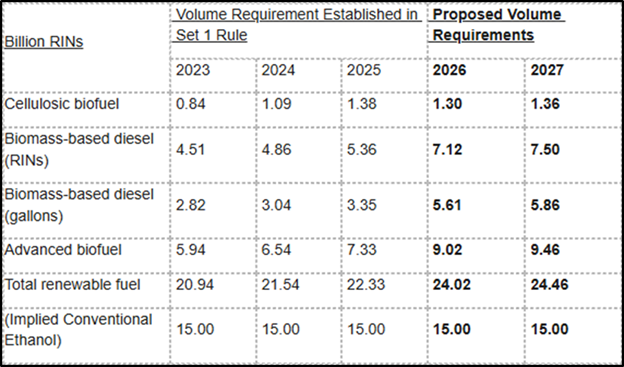The U.S. Environmental Protection Agency (EPA) last week proposed new Renewable Fuel Standard (RFS) volume requirements for 2026 and 2027. The volume requirements are two years of compliance numbers.
According to EPA, the RFS was historically a “one dial” system, where the only changes to the program were increasing or decreasing volumes. The new EPA proposal is a “second dial” that relates to the value of a RIN based on whether the biofuel is from domestic or foreign sources. Specifically, foreign biofuels and feedstocks are only being provided 50% of the value relative to domestic biofuels and feedstocks.
“We remain concerned about the unsettled tax policies relating to biodiesel and renewable diesel fuel and what that means for EPA’s renewable volume obligations,” said Matt Durand, deputy general counsel for NACS. “We will continue to review this proposal and provide comments to EPA, but it is of paramount importance that the policies avoid pushing prices at the pump in light of the challenges happening in the production of these products. Congress can help address this situation by quickly renewing the 40A biodiesel blenders credit in order to mitigate the upheaval in that market today.”
Volume Requirements 2023 – 2027 (billion RINs):

NACS previously sent a letter to EPA Administrator Lee Zeldin in April, noting, “Our members have grave concerns that setting volumes for total advanced biofuel at levels that the market is unable to economically absorb will result in steep increases in [RIN] prices and, by extension, in the retail price of diesel. Unrealistic mandates, particularly when they are not paired with the relief that the [blenders’ tax credit] could help provide, would be destructive of the market and impose palpable inflationary pressures that will hit American consumers directly in their wallets every time they buy virtually any good in the nation.”